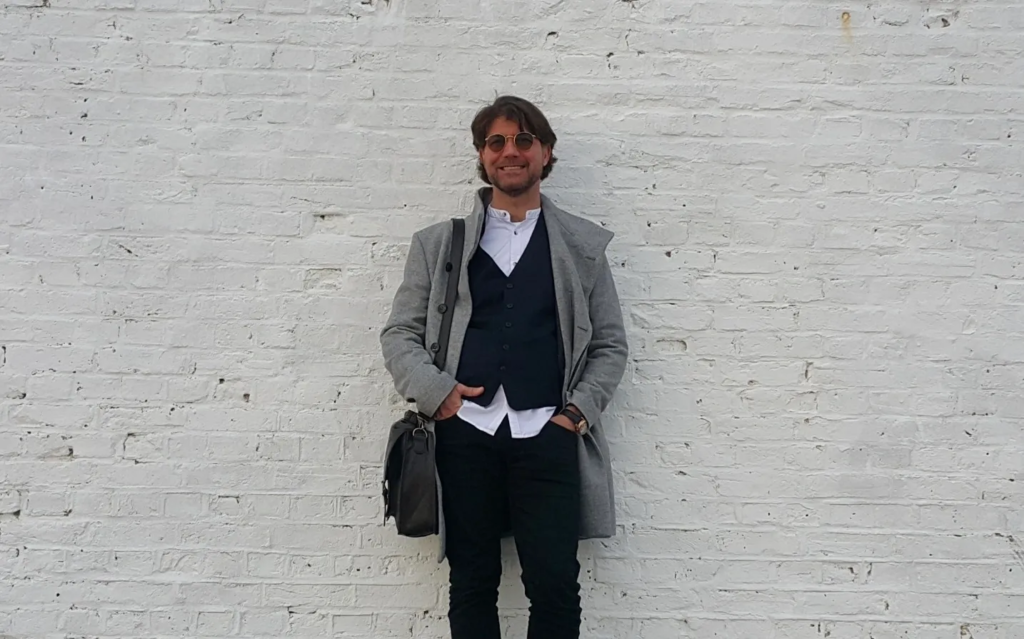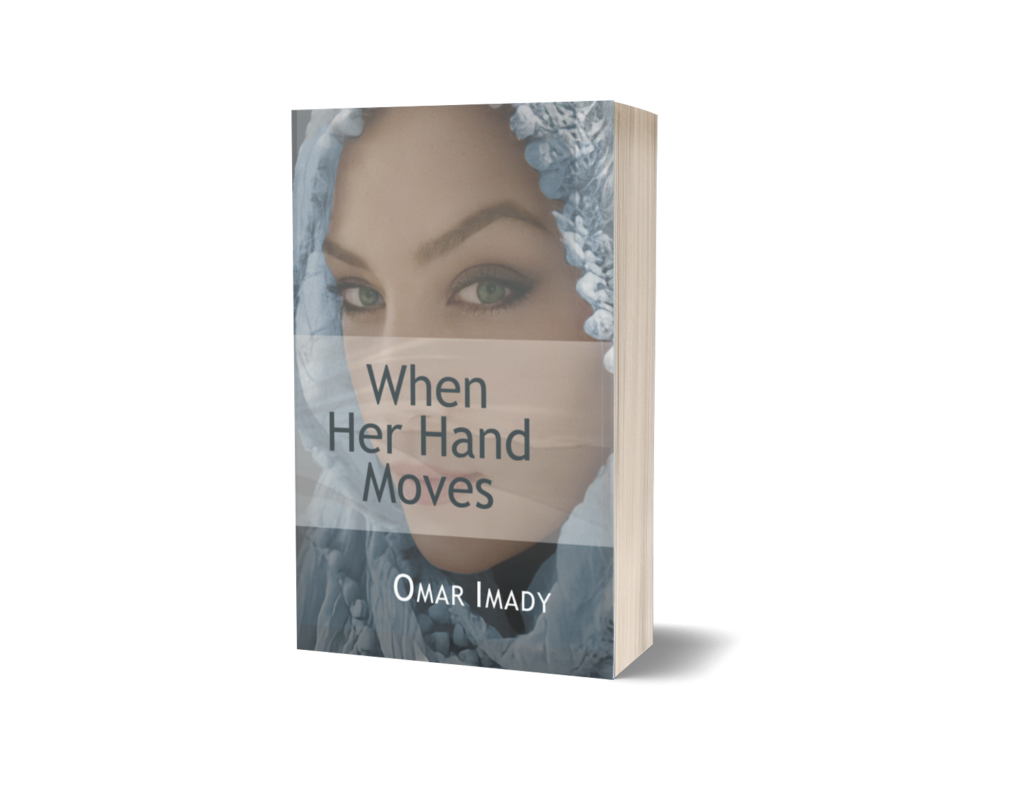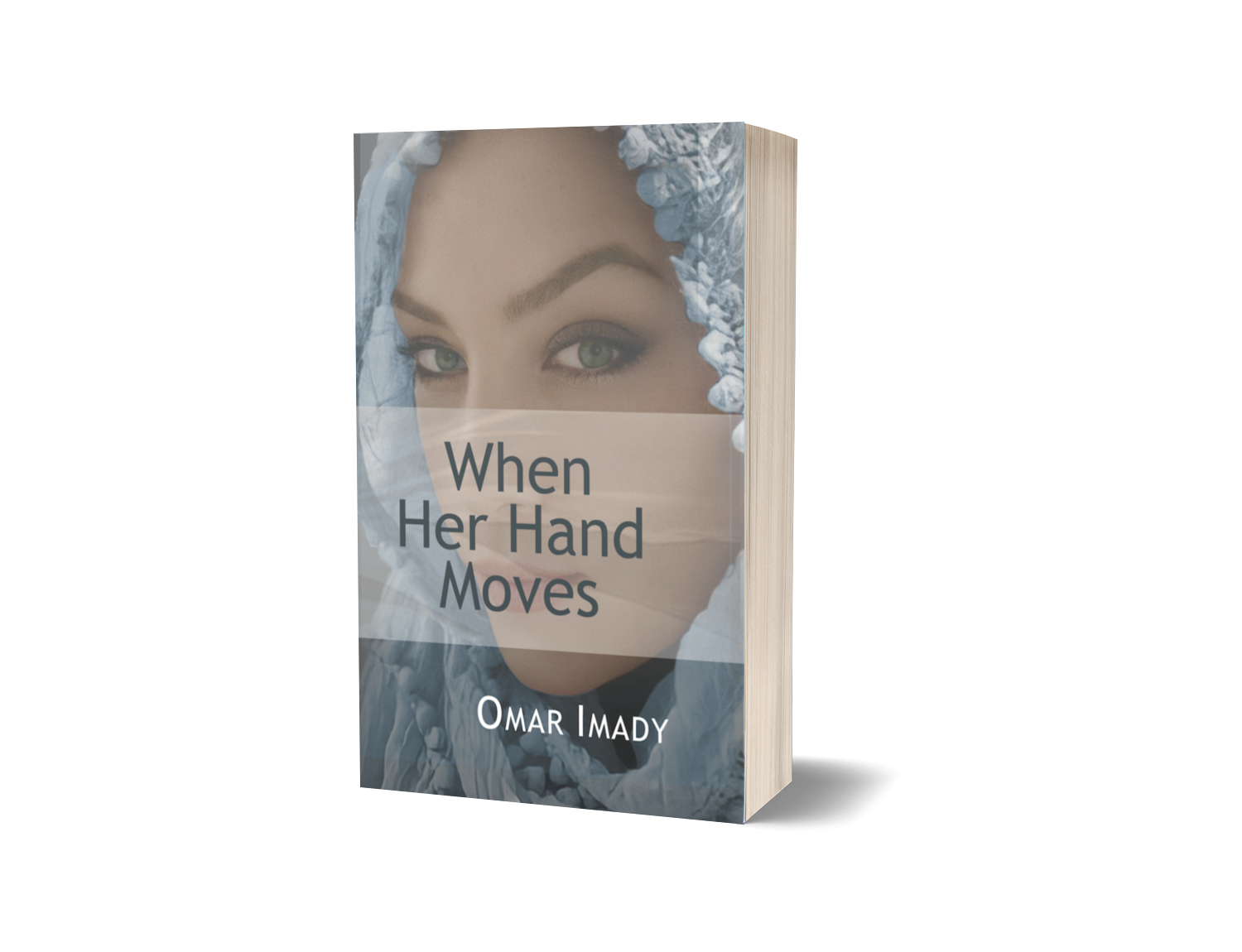
Interview with Omar Imady about ‘When Her Hand Moves.’
Omar Imady answers questions about When Her Hand Moves.
Perfect for book club discussions!
What was your main inspiration for the novellas?
It’s really hard to think in terms of a main inspiration. Usually, my writing reflects a complex mixture of various forms of inspiration. But if I had to choose one specific theme which cuts through both novellas it would have to be the experience of feeling evicted from my own country as a result of the tragic events Syria has undergone since 2011.
How much of your books are autobiographical?
Had you asked me this question after completing my first novel, I would have had to answer that my own life features significantly in my writing. But I have since systematically moved away from incorporating autobiographical fragments. Some may remain in When Her Hand Moves but in the novels and short stories that I have completed since, I notice that I have more very far away from any autobiographical inspiration. It is far more captivating for me presently to delve into a very distant life narrative than it is to delve into my own.
What made you want to be a writer?
I don’t recall ever making this decision. I think, possibly at the risk of sounding absurd, the question should be what made writing want to come through me.
Elements of magical realism appear in both movements. Is magical realism a theme in all of your writing?
It was only after I started writing that someone pointed out to me that my fictional work could possibly fall under the genre of magic realism. I guess what I mean is that this was not a purposeful choice of style, but rather a retrospective realisation that I had written this way.
Do you take inspiration from any other literary works?
As far as writers who inspire me, I can be very eclectic in the books I read, and it’s not uncommon for me to be unable to finish books I start reading. I do have a list of ‘favourites’ that have survived over time. This includes Silk by Alessandro Baricco, The Two of Us by Alberto Moravia (which I actually first read in the Arabic translation), Fear of Flying by Erica Jong, The Conversion of the Jews by Philip Roth, Your Silence Will Not Protect You by Audre Lourde, and The Proof of the Honey by Salwa al-Neimi.
The Hand of Fatima features as an integral part of one of the novellas. Is this a key part of your teaching and learning or did you research it for the sake of this book?
It is very difficult to grow up in Damascus without having close encounters with the Hand of Fatima, so yes, I did experience this ‘first hand’. But I have always felt that these symbols contain a deeper meaning than their popular consumption would have us believe. So rather than simply some type of charm or amulet to ward off evil, I saw this symbol as more of a map for a very different spiritual geography.
Does writing energize or exhaust you?
Both.
Do you want each book to stand on its own, or are you trying to build a body of work with connections between each book?
I’m honestly not sure what I’m trying to do. All I know is that a story arrives in my head, and it won’t leave me alone until I write it down. Whether or not the end products form a cohesive or meaningful whole is not something that I am in a position to judge.
What’s your favorite under-appreciated novel?
It’s not exactly a novel, but in my research for my latest book, I discovered the writings of Margery Kemp, who, it transpires, was the progenitor of the autobiographical genre. Her works is an incredible snapshot into the life of a medieval woman, whose existence was permeated by the erotic, spiritual, and her restless thirst for exploration.
Do you view writing as a kind of spiritual practice?
Yes. But it is more than just spiritual. It is equally spiritual, sensual, emotional, and intellectual, which is why it can be both energizing and exhausting.
What’s the most difficult thing about writing characters from the opposite sex?
I’m not sure I see women as ‘the opposite sex’. As I am often reminded by women in my world, gender is a social construct, and I find that I am actually far more at peace vocalising experiences that may fall under the umbrella of the ‘feminine’, perhaps because I grew up in a home permeated by very strong female figures – my mother, my two sisters, and my two aunts, and the stream of their many female friends who constantly visited us in our home in Damascus.
Describe how you want readers to experience your endings?
That’s a difficult question to answer because I myself have multiple experiences of my stories, and I tend to have a different experience of the endings each time I read them. My hope, however, is that each story as a whole is read as an authentic expression of a human experience.
Would you say that parts of your work are controversial? In what way?
I think the most controversial aspect of what I write is that I am writing from within. In other words, I speak from within the faith experience even as I have an uncommon approach to the nature and purpose of this experience. In other words, what makes some of what I write difficult for some readers is that this isn’t a voice that can be dismissed as a hostile outsider, since I am neither.
If you were to list three things you consistently challenge in your writing, what would they be?
That’s a good question, and though I will probably regret answering this, if I had to identify things which truly irk me and I find myself challenging in my writing they would be: thought that is governed by ideology in the broadest sense of the word, eyes that refuse to see the imperfections of their own worlds, and words that fuel witch hunts and cancel cultures.
What are three things you cherish the most?
I think it was Jewel who once said, ‘In the end, only kindness matters.’ Though I would probably have to add to this a dose of spiritual ecstasy and sprinkling of the sensual.

When Her Hand Moves by Omar Imady is available now.


